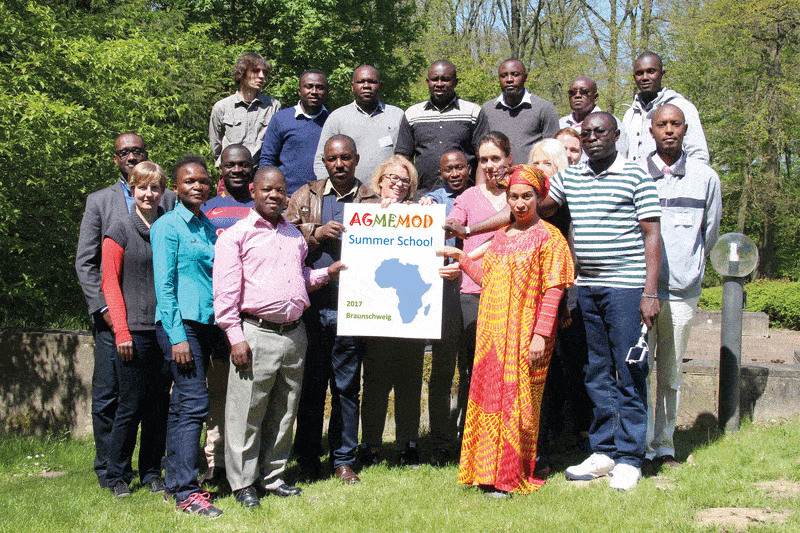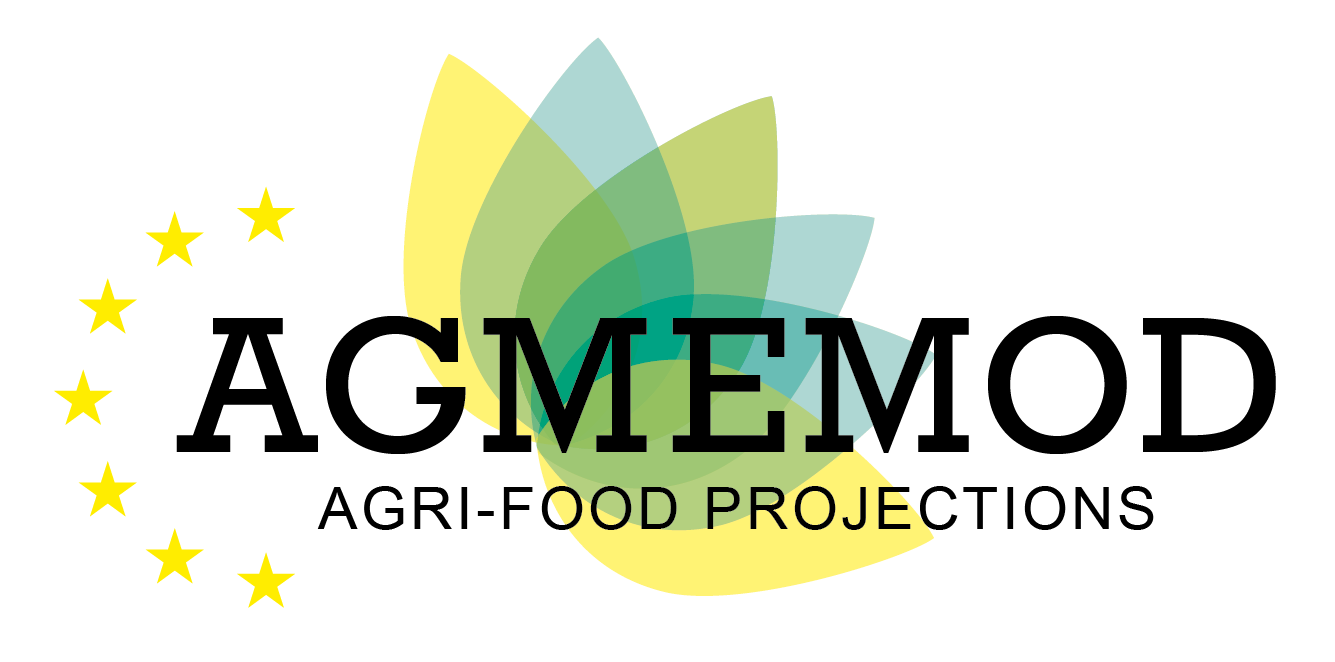Past Projects
SUPREMA

Impact assessments in the areas of agriculture are (partly) based on projections delivered by models. Sectoral policies are becoming more and more interrelated. Hence, there is a need to improve the capacity of current models, connect them or redesign them to deliver on an increasing variety of policy objectives, and to explore future directions for agricultural modelling in Europe.
SUPREMA addresses this challenge by proposing a meta-platform that supports modelling groups linked already through various other platforms and networks. SUPREMA should help close the gaps between expectations of policy makers and the actual capacity of models to deliver relevant policy analysis. The SUPREMA model family includes a set of ‘core models’ that are already used in support of key European impact assessments in agriculture, trade, climate and bioenergy policies. The meta-platform, the enhanced linked system of existing core models and some key applications melt down in a Roadmap for future directions for agricultural modelling in Europe.
Link: https://www.suprema-project.eu/
SUCCESS
 SUCCESS was a European research project financed for 3 years (2015-2018). It was part of the H2020 Strategy, which is the EU Research and Innovation Programme for the period 2014-2020. H2020 puts the emphasis on three core themes: science of excellence, industrial leadership and societal challenges. It aims to raise the level of excellence in Europe’s science base, encourage important achievements, discoveries and “world-firsts” by taking great ideas from the lab to the market.
SUCCESS was a European research project financed for 3 years (2015-2018). It was part of the H2020 Strategy, which is the EU Research and Innovation Programme for the period 2014-2020. H2020 puts the emphasis on three core themes: science of excellence, industrial leadership and societal challenges. It aims to raise the level of excellence in Europe’s science base, encourage important achievements, discoveries and “world-firsts” by taking great ideas from the lab to the market.
Link: http://www.success-h2020.eu
AGRICISTRADE
 The on-going negotiations on the Deep and Comprehensive Free Trade Agreements between the EU, Armenia, Georgia, Moldova and Ukraine, the accession of Russia to the World Trade Organisation in 2012 and the establishment of a Customs Union between Russia, Belarus and Kazakhstan in 2011 are expected to boost trade relations between the European Union and its Eastern Neighbours. The aim of AGRICISTRADE was to accompany these developments by analysing the potential impact of these trade agreements and by delivering insights on the potential developments of the food, feed and biomass sectors in Armenia, Azerbaijan, Belarus, Georgia, Kazakhstan, Moldova, Russia and Ukraine. AGRICISTRADE contributes to the analysis of the present situation, the potentials and the projection of future agri-food developments. This project contributed to improve the understanding of present agricultural and food processing sectors in the Commonwealth of Independent States (CIS) by collecting and evaluating statistical data and related policies. Based on its multidisciplinary expertise theAGRICISTRADE consortium investigated agro-ecological, socio-economic and institutional bottlenecks to exploit the agricultural potentials in CIS and shows the implications of policy interventions for development perspectives of a number of selected supply chains. AGRICISTRADE improved existing biophysical and economic modelling tools enhancing their empirical base and regional representation, and developed a framework for assessing agricultural production and demand potentials in CIS. Modelling tools used to quantify and analyse the impact of market developments, technology and policy scenarios on CIS agricultural production, demand and trade, specifically addressing the implications of these scenarios for the EU agri-food sector. The project results contributed to a fact-based and well-informed dialogue among EU policy makers on the possible impact of a DCFTA on CIS agricultural development potentials.
The on-going negotiations on the Deep and Comprehensive Free Trade Agreements between the EU, Armenia, Georgia, Moldova and Ukraine, the accession of Russia to the World Trade Organisation in 2012 and the establishment of a Customs Union between Russia, Belarus and Kazakhstan in 2011 are expected to boost trade relations between the European Union and its Eastern Neighbours. The aim of AGRICISTRADE was to accompany these developments by analysing the potential impact of these trade agreements and by delivering insights on the potential developments of the food, feed and biomass sectors in Armenia, Azerbaijan, Belarus, Georgia, Kazakhstan, Moldova, Russia and Ukraine. AGRICISTRADE contributes to the analysis of the present situation, the potentials and the projection of future agri-food developments. This project contributed to improve the understanding of present agricultural and food processing sectors in the Commonwealth of Independent States (CIS) by collecting and evaluating statistical data and related policies. Based on its multidisciplinary expertise theAGRICISTRADE consortium investigated agro-ecological, socio-economic and institutional bottlenecks to exploit the agricultural potentials in CIS and shows the implications of policy interventions for development perspectives of a number of selected supply chains. AGRICISTRADE improved existing biophysical and economic modelling tools enhancing their empirical base and regional representation, and developed a framework for assessing agricultural production and demand potentials in CIS. Modelling tools used to quantify and analyse the impact of market developments, technology and policy scenarios on CIS agricultural production, demand and trade, specifically addressing the implications of these scenarios for the EU agri-food sector. The project results contributed to a fact-based and well-informed dialogue among EU policy makers on the possible impact of a DCFTA on CIS agricultural development potentials.
Link: https://cordis.europa.eu/project/rcn/111308/factsheet/en
AGMEMOD goes Africa

In 2013 AGMEMOD started a network with the Association for Strengthening Agricultural Research in Eastern and Central Africa (ASARECA) to develop country models with the capacity to project food prices in Ethiopia, Kenya and Uganda. The proposed project took forward building regional capacity for analysing and implementing appropriate agricultural policies. Since then, several countries have worked with AGMEMOD and have institutionalized the model to analyse future food market trends as an aid to strategic policy decisions for food security in countries from Eastern and Central Africa.
Currently different African economists work and develop AGMEMOD country models for their countries. The AGMEMOD network offers online support to the development of country models and the provision of policy advice based on model results. Furthermore, we offer regularly Summer Schools for scientists who start working with AGMEMOD.
